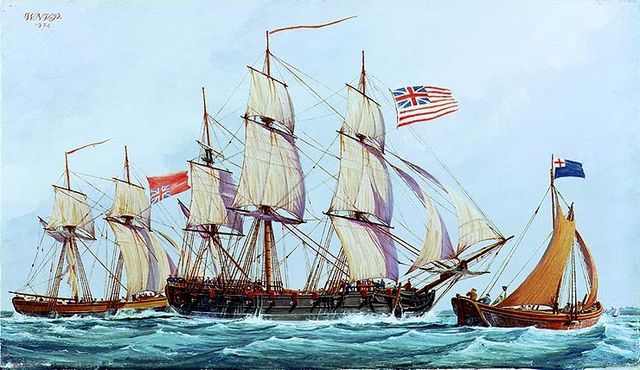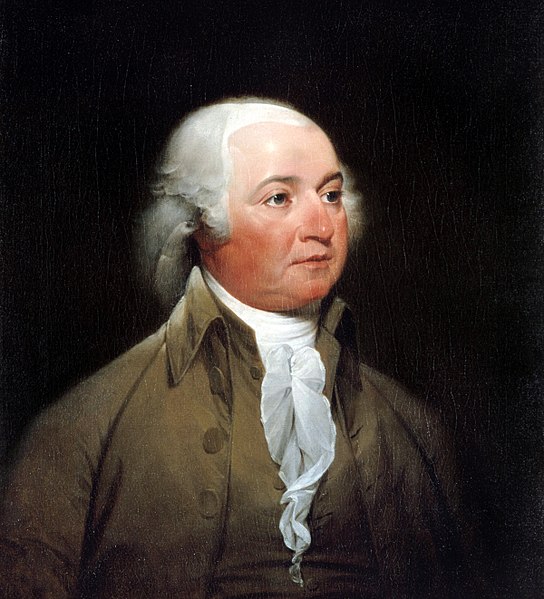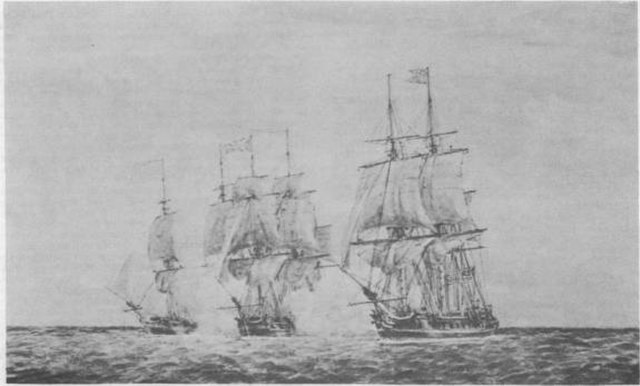Commander Abraham Whipple was an American naval officer best known for his service in the Continental Navy during the Revolutionary War and being one of the founders of Marietta, Ohio. Born near Providence, Colony of Rhode Island, Whipple chose to be a seafarer early in his life and embarked on a career in the lucrative trade with the West Indies, working for Moses and John Brown. In the French and Indian War period, he became a privateersman and commanded privateer Game Cock from 1759 to 1760. In one six-month cruise, he captured 23 French ships.
Abraham Whipple, by Edward Savage
Continental ship Columbus commanded by Abraham Whipple, bringing in a captured British brig, 1776
An 1895 lithograph print of Whipple
Abraham Whipple marker at Mound Cemetery, Marietta, Ohio
The Continental Navy was the navy of the Thirteen Colonies during the American Revolutionary War. Founded on October 13, 1775, the fleet developed into a relatively substantial force throughout the Revolutionary War, owing partially to the substantial efforts of the Continental Navy's patrons within the Continental Congress. These Congressional Patrons included the likes of John Adams, who served as the Chairman of the Naval Committee until 1776, when Commodore Esek Hopkins received instruction from the Continental Congress to assume command of the force.
John Adams took an active role in the formation of the navy and the drafting of suitable operational regulations. Painting by John Trumbull, c. 1792–93.
Continental ship Columbus with captured British brig Lord Lifford, 1776
Abraham Whipple painting by Edward Savage
Continental frigates Hancock and Boston capturing British frigate Fox, June 7, 1777






